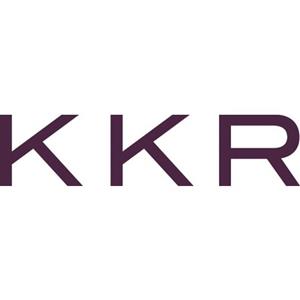The Battle for Seven & i: A High-Stakes Game of Bids
December 25, 2024, 9:52 pm
In the bustling heart of Tokyo, a financial showdown is brewing. Private equity giants KKR and Bain Capital have thrown their hats into the ring, each offering over $5 billion for the non-core assets of Japan's Seven & i Holdings. This is not just a bidding war; it’s a chess match where every move counts.
Seven & i Holdings, the parent company of 7-Eleven, is looking to shed its non-essential businesses. The goal? Streamline operations and focus on core competencies. The assets up for grabs include a variety of subsidiaries, from superstores to baby goods retailers. The stakes are high, and the players are formidable.
KKR's bid stands at approximately 800 billion yen, or about $5.1 billion. Bain Capital, not to be outdone, has offered around 1.2 trillion yen. Japan Industrial Partners, a local player, has also entered the fray with a bid of around 750 billion yen. These figures surpass the expected enterprise value of 500 billion yen, indicating a fierce competition among the bidders.
The bidding process is shrouded in secrecy. Sources close to the situation reveal that all three firms have successfully navigated the first round of bids. However, the final outcome remains uncertain. Each firm will now prepare legally binding proposals, but adjustments may occur after due diligence. This is a dance of numbers, where flexibility can make or break a deal.
Seven & i is not just offloading assets; it’s also facing external pressures. The founding family is in discussions to take the company private, a move that could thwart a $47 billion takeover attempt by Canada’s Alimentation Couche-Tard. This potential management buyout adds another layer of complexity to the situation. If successful, it would mark the largest privatization of a Japanese firm to date.
The implications of these bids extend beyond mere numbers. They reflect a broader trend in the retail sector, where companies are reevaluating their portfolios in response to changing consumer behaviors and market dynamics. The pandemic has accelerated shifts in shopping habits, prompting retailers to adapt or risk obsolescence.
KKR and Bain are not just looking for a quick win. They are eyeing long-term value. The assets in question include 31 subsidiaries, encompassing various sectors. This diversity could provide a robust foundation for future growth. The superstore operations, in particular, are a tantalizing prospect. They represent a significant slice of the retail market in Japan.
The competition between KKR and Bain is emblematic of a larger narrative in private equity. These firms are not just investors; they are strategic players in the global economy. Their decisions can reshape industries, influence job markets, and impact consumer choices. In this case, the winner will not only gain valuable assets but also a foothold in one of the world’s largest retail markets.
As the bidding process unfolds, the clock is ticking. Seven & i aims to finalize its decision by early spring. This timeline adds urgency to the negotiations. Each firm must weigh its options carefully, balancing ambition with caution. The potential for a lucrative return on investment is enticing, but the risks are equally significant.
The outcome of this bidding war will resonate beyond Japan. It will send ripples through the private equity landscape, influencing future deals and strategies. Investors will be watching closely, eager to glean insights from this high-stakes contest.
In the end, the battle for Seven & i is more than just a financial transaction. It’s a reflection of the evolving retail landscape, the strategic maneuvers of private equity firms, and the relentless pursuit of growth. As the dust settles, one thing is clear: the game is on, and the stakes have never been higher.
In a world where change is the only constant, adaptability is key. Seven & i is making bold moves, and the private equity firms are ready to respond. The next few months will be crucial. Will KKR or Bain emerge victorious? Or will Japan Industrial Partners surprise everyone? Only time will tell. But one thing is certain: this is a story worth following. The financial world is watching, and the implications are profound. The battle for Seven & i is just beginning.
Seven & i Holdings, the parent company of 7-Eleven, is looking to shed its non-essential businesses. The goal? Streamline operations and focus on core competencies. The assets up for grabs include a variety of subsidiaries, from superstores to baby goods retailers. The stakes are high, and the players are formidable.
KKR's bid stands at approximately 800 billion yen, or about $5.1 billion. Bain Capital, not to be outdone, has offered around 1.2 trillion yen. Japan Industrial Partners, a local player, has also entered the fray with a bid of around 750 billion yen. These figures surpass the expected enterprise value of 500 billion yen, indicating a fierce competition among the bidders.
The bidding process is shrouded in secrecy. Sources close to the situation reveal that all three firms have successfully navigated the first round of bids. However, the final outcome remains uncertain. Each firm will now prepare legally binding proposals, but adjustments may occur after due diligence. This is a dance of numbers, where flexibility can make or break a deal.
Seven & i is not just offloading assets; it’s also facing external pressures. The founding family is in discussions to take the company private, a move that could thwart a $47 billion takeover attempt by Canada’s Alimentation Couche-Tard. This potential management buyout adds another layer of complexity to the situation. If successful, it would mark the largest privatization of a Japanese firm to date.
The implications of these bids extend beyond mere numbers. They reflect a broader trend in the retail sector, where companies are reevaluating their portfolios in response to changing consumer behaviors and market dynamics. The pandemic has accelerated shifts in shopping habits, prompting retailers to adapt or risk obsolescence.
KKR and Bain are not just looking for a quick win. They are eyeing long-term value. The assets in question include 31 subsidiaries, encompassing various sectors. This diversity could provide a robust foundation for future growth. The superstore operations, in particular, are a tantalizing prospect. They represent a significant slice of the retail market in Japan.
The competition between KKR and Bain is emblematic of a larger narrative in private equity. These firms are not just investors; they are strategic players in the global economy. Their decisions can reshape industries, influence job markets, and impact consumer choices. In this case, the winner will not only gain valuable assets but also a foothold in one of the world’s largest retail markets.
As the bidding process unfolds, the clock is ticking. Seven & i aims to finalize its decision by early spring. This timeline adds urgency to the negotiations. Each firm must weigh its options carefully, balancing ambition with caution. The potential for a lucrative return on investment is enticing, but the risks are equally significant.
The outcome of this bidding war will resonate beyond Japan. It will send ripples through the private equity landscape, influencing future deals and strategies. Investors will be watching closely, eager to glean insights from this high-stakes contest.
In the end, the battle for Seven & i is more than just a financial transaction. It’s a reflection of the evolving retail landscape, the strategic maneuvers of private equity firms, and the relentless pursuit of growth. As the dust settles, one thing is clear: the game is on, and the stakes have never been higher.
In a world where change is the only constant, adaptability is key. Seven & i is making bold moves, and the private equity firms are ready to respond. The next few months will be crucial. Will KKR or Bain emerge victorious? Or will Japan Industrial Partners surprise everyone? Only time will tell. But one thing is certain: this is a story worth following. The financial world is watching, and the implications are profound. The battle for Seven & i is just beginning.

